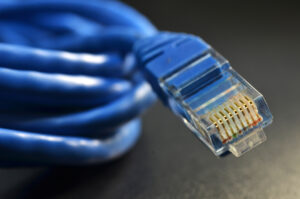[vc_row][vc_column][vc_column_text]
 As discussed in Part 1, every modern organization has to consider the type of cabling it needs to meet its technological and business requirements. Part 2 will discuss Types of Shielded Cabling, Shielded Cable Uses, and Unshielded Cable Uses.
As discussed in Part 1, every modern organization has to consider the type of cabling it needs to meet its technological and business requirements. Part 2 will discuss Types of Shielded Cabling, Shielded Cable Uses, and Unshielded Cable Uses.
Types of Shielded Cabling
STP (shielded twisted pair) cabling is capable of significantly reducing EMI/RFI (electromagnetic interference/radio frequency interference) disturbances caused by electronic devices and objects, resulting in more consistent and reliable transmissions. STP cables are made up of a grouping of several pairs of wires. Every pair is twisted together for reducing crosstalk from the other wire pairs in the grouping.
The following lists the three kinds of shielding and the level of protection each provides.
- Braided – EMI shielding of 90%
- Spiral – EMI shielding of 98%
- Metal-coated Mylar or Foil – EMI shielding of 100%
Shielded Cable Uses
STP cables are most needed in facilities or areas where there is a greater probability of electronic interference. Examples would be airports and radio stations.
STP cabling is also utilized by security systems because protection is needed from both radio frequency and power frequency interference. Another use is within box builds, where several different electronic components must function very close to one another.
In addition to protection from external interference, shielding also prevents EMI/RFI from the cable itself, preventing surrounding devices from being affected by the interference that would have been otherwise generated if unshielded.
Unshielded Cable Uses
As UTP cables are not shielded from interference, they are best installed in office LANs (local area networks) and network cabling systems that are similar. Although they provide less protection from interference, unshielded cabling is in greater use worldwide due to their versatility, reduced cost, ease of installation, flexibility, and lighter weight. Of course, the greatest drawback of unshielded twisted pair cables is their vulnerability to EMI/RFI. In addition, they offer less bandwidth than coaxial and fiber optic cables.
Progressive Office Cabling
Founded in 1986, Progressive Office’s success has been a direct result of years of commitment to seeking cost-effective solutions. Working together, Progressive teams are committed to getting your data cables installed and operating while minimizing disruption and downtime. Call our toll free number (800) 614-4560 today. Or click here.
[/vc_column_text][/vc_column][/vc_row]

